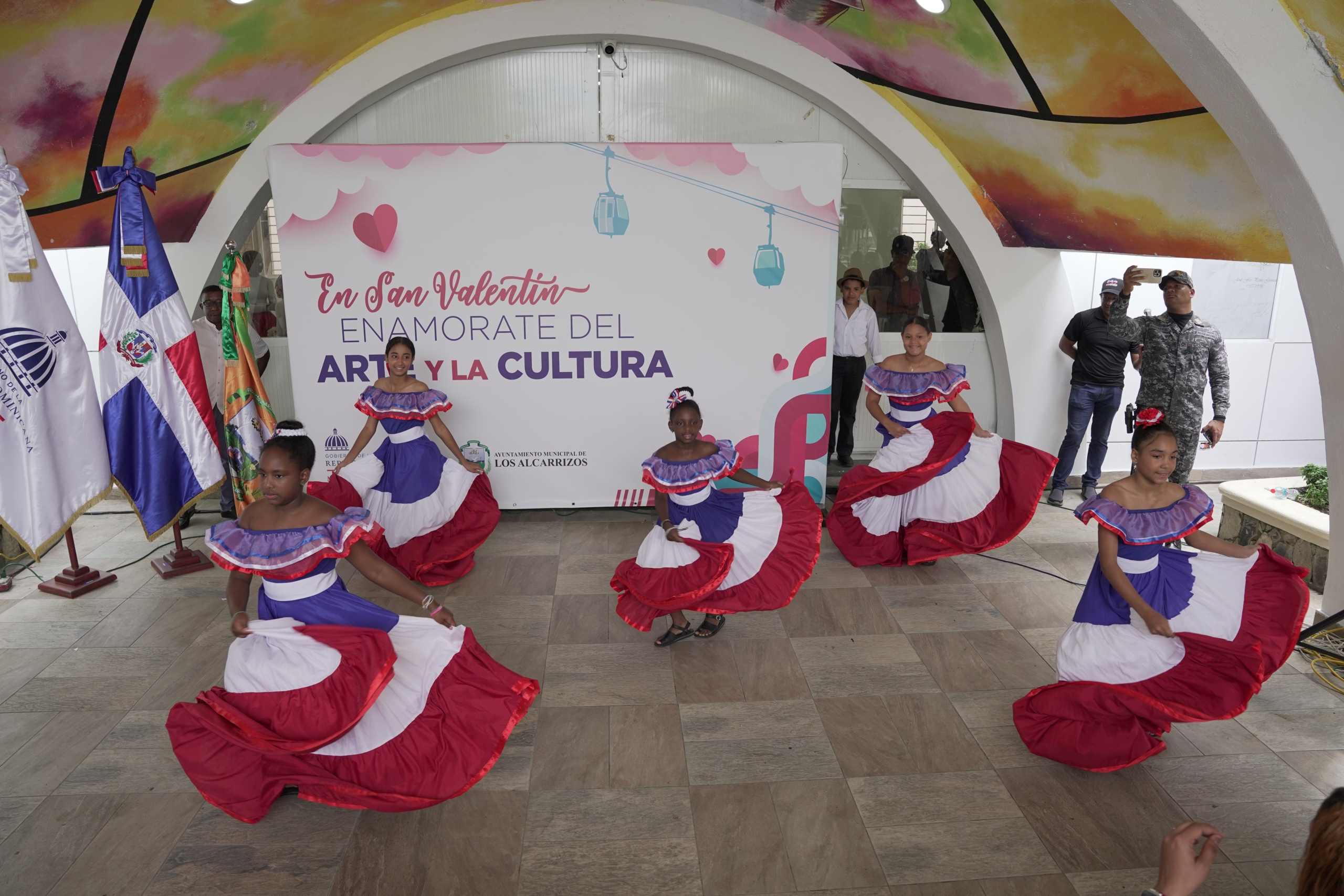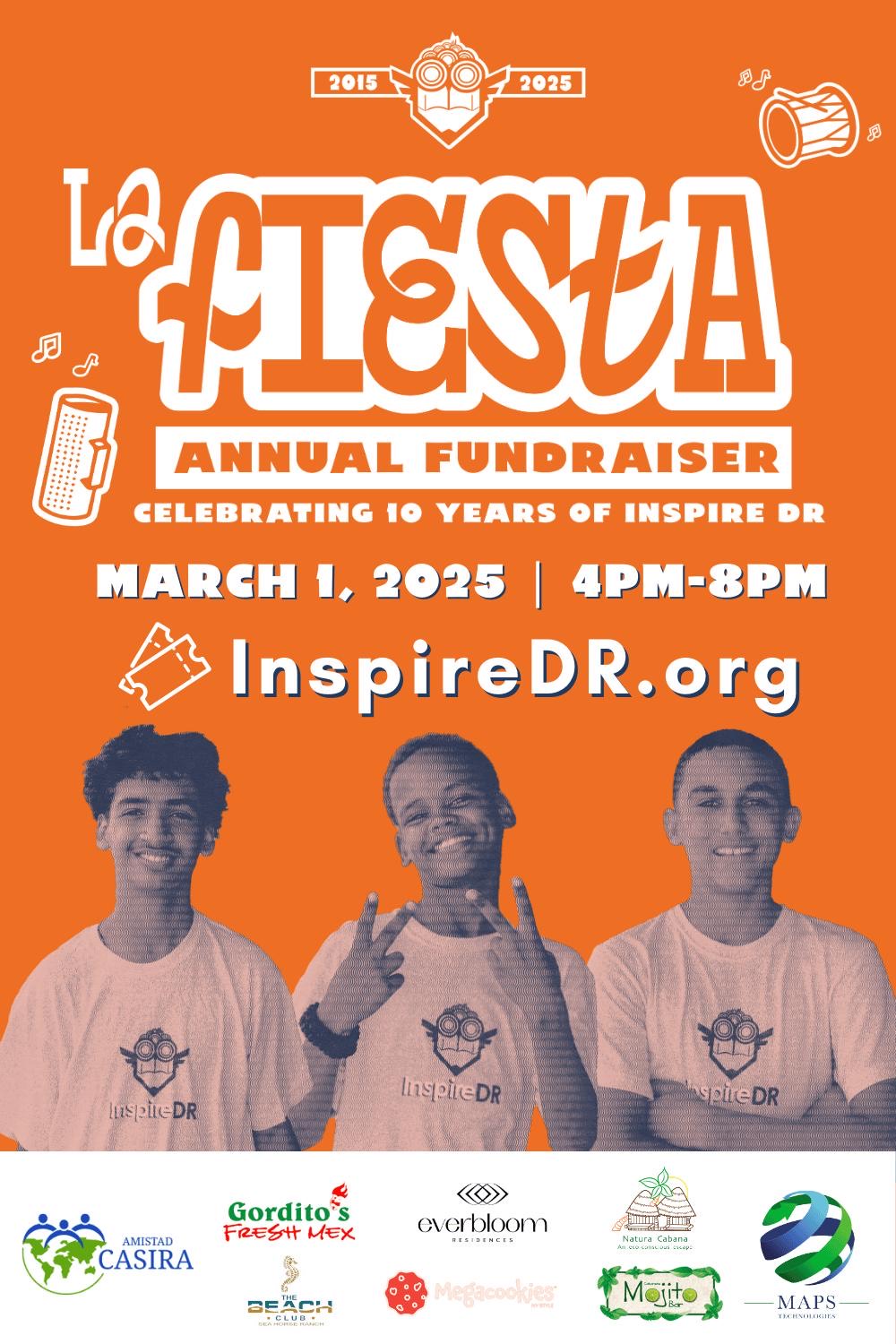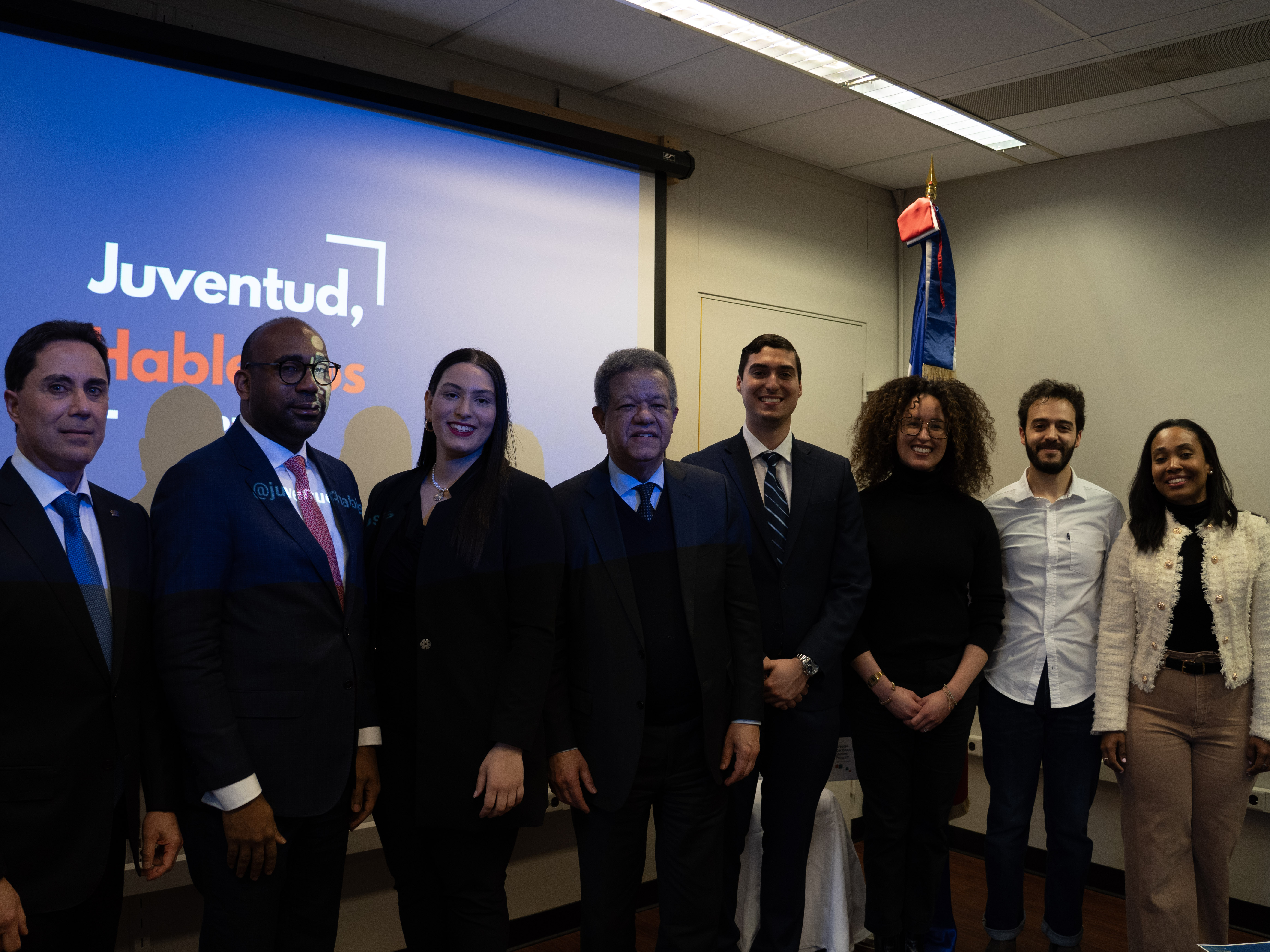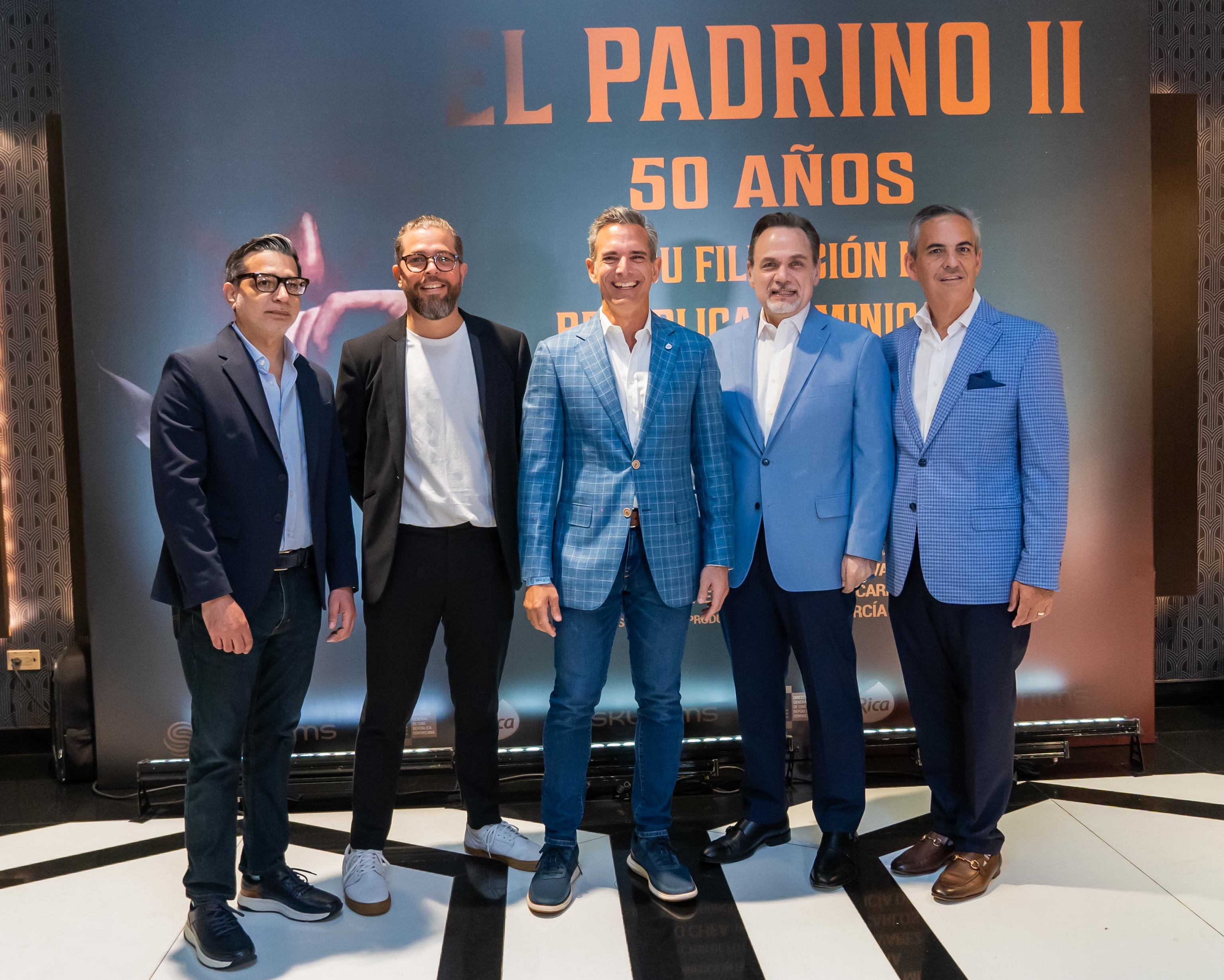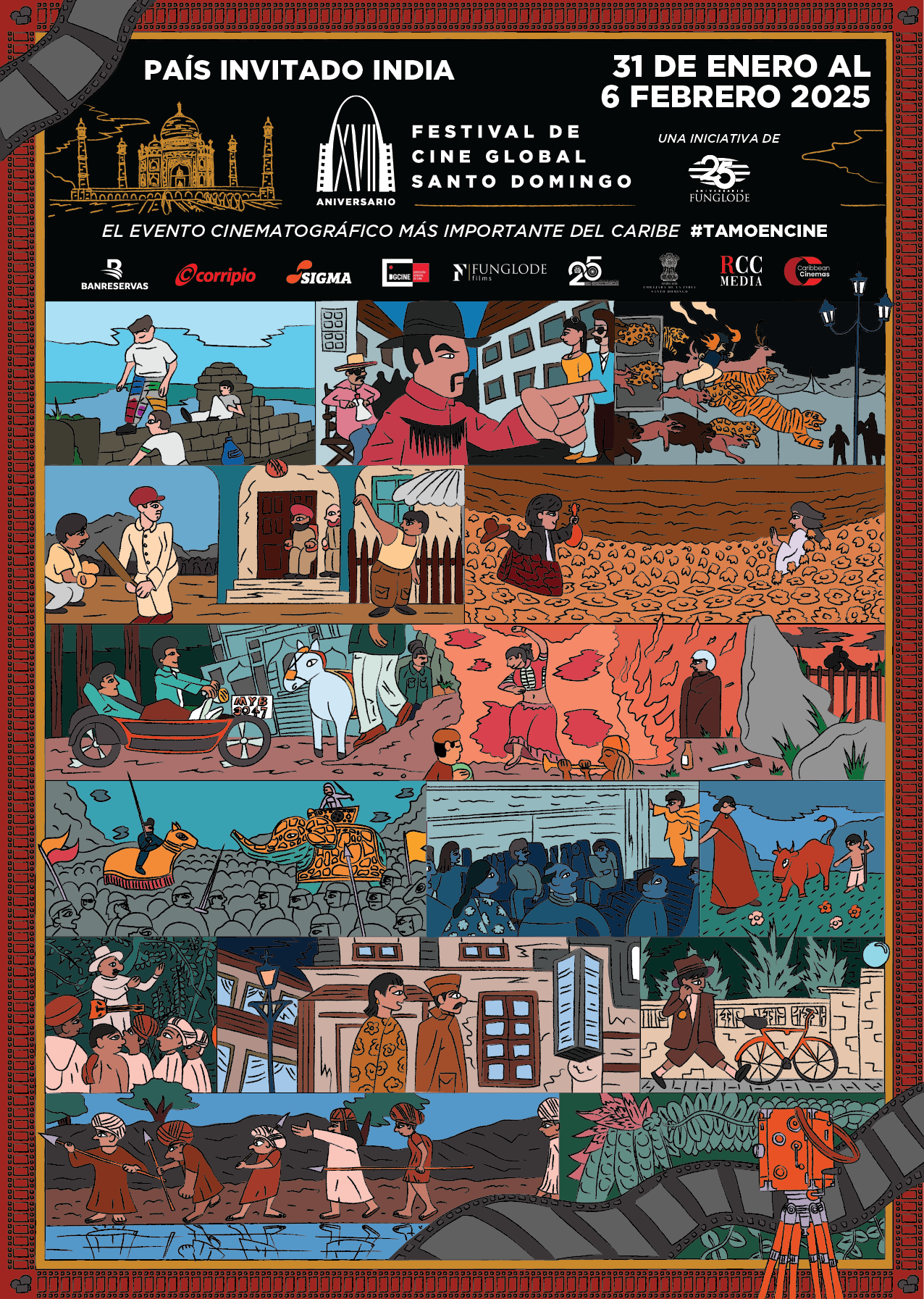 |
|
Over 300 students take part in the MODOSI 2011
Dominican Republic, Santo Domingo, 02/09/2011
The First Dominican Model of the Inter-American System opened this past Wednesday at the Central Bank in the Dominican Republic, with the participation of President Leonel Fernandez.
Mr. Leonel Fernandez, President of the Dominican Republic, delivered the final message. He expressed “great satisfaction and immense joy” to attend the opening session of an event that follows others modeled after the United Nations, which he described as “a revolution for young people who embrace it.
The United Nations Association of the Dominican Republic (UN ARD), the Fundación Global Democracia y Desarrollo (FUNGLODE) and its sister organization in the United States the Global Foundation for Democracy and Development (GFDD), with institutional support from the Department of International Affairs of the Organization of American States (OAS) and the Youth Development Outreach Program of the Inter-American Development Bank (IDB Youth), opened this past Wednesday the First Dominican Model Conference of the Inter-American System (MODOSI 2011).
Mauricio Anibal Paz, Secretary General of MODOSI 2011, offered the welcoming remarks. He stressed the importance of this kind of events for youth by providing an opportunity to expand their horizons, strengthen their leadership and turn their human capital into their most valuable asset. Paz said that “these three days should be filled with joy and happiness, for we will share with other young people who feel the commitment of being the light that illuminates the road map of these times; and they are also an opportunity to enhance and develop our individual and social skills, to have fun and to make new friends.”
Paz had previously said that “the future of nations is built on the present, and every nation supports its youth to expand their horizons, even more in this globalized world. Organizing activities such this one allows for this to happen. These activities have high educational and academic value and contribute to educate participants on developing the necessary values and skills to become responsible global citizens committed to their people and their environment.”
In the end, he called for the MODOSI 2011 delegates to “commit to give your best during the Model Conference and throughout your lives. I see a group of young entrepreneurial leaders and change agents who know how to act with justice.”
The President’s Envy
Mr. Leonel Fernandez, President of the Dominican Republic, delivered the final message. He expressed “great satisfaction and immense joy” to attend the opening session of an event that follows others modeled after the United Nations, which he described as “a revolution for young people who embrace it. I have been able to feel the increasingly clear understanding they have of international developments. Therefore, why should we not create an OAS Model to find out more about issues, conflicts, challenges and opportunities in Latin America? Today we do.”
He recalled that the unification of the Latin American countries and the integration of the Caribbean were already under consideration at the time of independence, “before the issue was raised in Europe or elsewhere.” Then he set out to examine the savagery of the twentieth century and the formulas that were put in place with a view to avoiding triggering new conflicts similar to the two World Wars. With respect to the Second of World War, he emphasized two events, “the Holocaust and the Atomic Bomb, which brought the world to create the United Nations system in San Francisco, which remains the world body with the greatest authority and prestige for the resolution of the various problems that affect humanity. Within this framework other regional bodies emerge to replicate what the UN does, and this is how the OAS came into being: a UN version at the regional level, with the same purposes and goals: to ensure the peace and security of its member countries, to create mechanisms for the peaceful resolution of disputes, to promote the non-intervention in the internal affairs of nations by appealing to the notion of sovereignty, and other purposes such as the consolidation of democracy.”
Fernandez related the Model Conference with events now happening in the Arab world, where the population has taken to the streets in some countries to demand an end to autocratic rule and usher in democratic systems.”All those who have embraced these democratic values have applauded these events, which also happened in Latin America in the 70s and 80s, towards democratic transition. For over 30 years and for the first time in our history we have had a transparent, representative and legitimate system. But sometimes authoritarian temptations loom of arising to power by removing legally established governments through the use of violence. Therefore, on September 11, 2001, in Lima, the OAS adopted the Inter-American Democratic Charter to isolate governments that come to power by force.”
He then referred to the implementation of this commitment in the case of Honduras. “This case has led us to propose changes in the Charter because we have seen that there are no compulsory measures for democratic governments to return once they have been expelled, and you will be able to discuss those issues here and propose solutions. You will also have discussions on democratic security, the recovery of Haiti, and on sustainable social responsibility… This is an extraordinary exercise of reflection. I envy you for I am no longer the young man that could participate in this debate, this is a healthy envy, but it is real. I wish I could leave the presidency and debate with you. This exercise is useful to learn about the world and how to create mechanisms to prevent conflicts and ensure peace, and to make a commitment to respecting human rights, dignity, and peace, and that means taking action on a daily basis to defend democracy and human rights.”
Other Speakers
Yamile Eusebio, Director of GFDD’s New York Office, conveyed the satisfaction of FUNGLODE’s sister organization in the United States, to take part in the organization of this Model Conference. She also reviewed the activities undertaken jointly with the OAS in the last eight years, highlighting the close link between these institutions and reaffirming the commitment they have to, through such initiatives, contribute to the development of the Dominican Republic and to help promote the excellent work that the Organization of American States has been developing throughout the Americas.
Ambassador Anibal Quinonez, OAS Representative in the Dominican Republic, expressed his “great and deep satisfaction to participate in this opening ceremony.” After outlining the history of the Model Conference, he stated that “the world in which you must live is extremely complex. Peace is threatened in many regions and this century has brought much belligerence to many countries. Each day, great evils which afflict society, such as drug trafficking, insecurity, violence, weapons and human trafficking, poverty, inequality and corruption, among others, generate backwardness in the region and negative repercussions on our democracies. He invited the MODOSI 2011 participants to “plunge into the OAS Model Conference and provide ideas that surely will be of great benefit to us all.”
Marco Herrera, FUNGLODE’s Executive Director, said he felt great pleasure to welcome the MODOSI participants, and satisfaction with the success that is foreseen. He mentioned how important these models are for FUNGLODE and how he supports them because of “their effect and impact on the participants, on their training, their education and acquisition of values such as discipline, teamwork, etc.”
Pilar Sandoval, Executive Director of UN ARD, delivered the message sent by Jose Miguel Insulza, OAS Secretary General, in which he underscored that “this type of exercises, where students learn about the work of the OAS and the policies of the countries of the hemisphere through the practice of political dialogue and negotiation to reach common solutions to problems that affect us all, is an important contribution to the consolidation of democratic values established in the Inter-American Democratic Charter, par excellence an instrument of consolidation and sustenance of our democracies, and a road map for the countries of the Hemisphere in achieving these goals.” Then he told how the MODOSI initiative was born. He stressed that “this local Model is innovative because it exceeds what is being done with other models, which focus on the simulation of the OAS General Assembly.”
Before President Fernandez’s intervention, Irene Klinger, OAS Director of International Affair who participated in this activity on behalf of the Secretary General, took the floor. She emphasized that “this conference takes place at an important moment in the history of Latin America, since we are living in times of some optimism in the region, because, despite the fear and the uncertainty caused by the great recession of 2009, in general, the Latin American countries have managed to withstand the global financial and economic crisis more successfully than many other regions of the world and are showing signs of relatively rapid recovery.”
The 2011 MODOSI
The MODOSI, which will run until Friday the 11, is an interactive simulation of the OAS General Assembly and the Permanent Council; the Summit of the Americas; and the General Assembly of Governors of the Inter-American Development Bank (IDB). During the event discussions on the following topics will take place: “Conditions for the reinstatement of Honduras to the OAS based on the Inter-American Democratic Charter,” “Joint efforts to tackle high levels of insecurity in the Americas,” “The regional community’s commitment for the implementation of reconstruction and development programs in Haiti,” and “Socially responsible development of natural resources.”
The head table at the opening ceremony was chaired by the President of the Republic, Leonel Fernandez. He was accompanied by the First Lady Margarita Cedeño de Fernandez; the Executive Director of the United Nations Association of the Dominican Republic, Pilar Sandoval; the Executive Director of the Fundación Global Democracia y Desarrollo (FUNGLODE), Marco Herrera; the OAS Director of International Affairs, Irene Klinger; the Vice Minister of Foreign Affairs, Alejandra Liriano; the OAS Representative in the Dominican Republic, Anibal Enriquez Quiñonez; the Director of the New York Office of the Global Foundation for Democracy and Development (GFDD), Yamile Eusebio; the Coordinator of the MOAS Program of the OAS Department of International Affairs, Nelly Robinson; and Anibal Mauricio Paz, Secretary General of MODOSI 2011.
Links:
http://unadr.org.do
www.oas.org
http://www.unadr.org.do/index.php?option=com_content&view=frontpage&Itemid=102&lang=es
|


